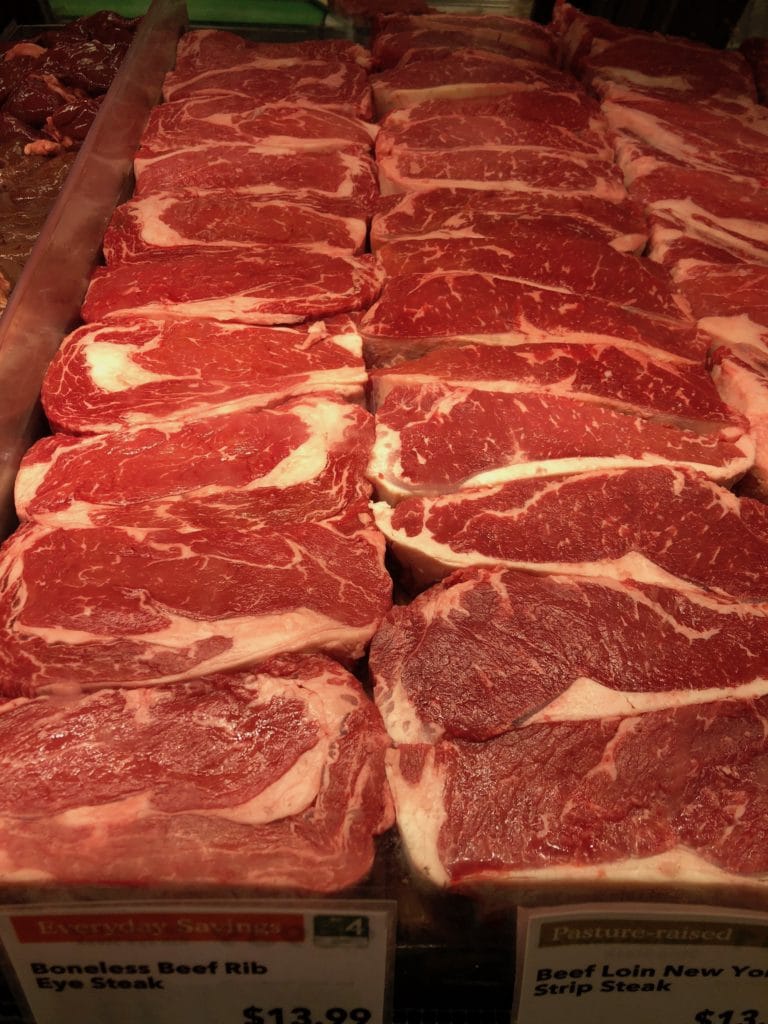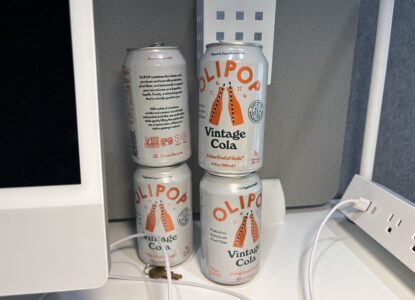Paul Saladino Changed His Diet: Should You?
Article at a Glance
- Dr. Paul Saladino deserves credit for publicly quitting his extreme carnivore diet. However, even in the new modified form, Saladino maintains LDL levels that have been proven dangerous over and over again.
- Modifying a carnivore diet with fruit and honey doesn’t change the long term risk profile.

Contents
The evolution of Dr. Paul Saladino’s dietary journey provides no shortage of excitement. Saladino was once the poster child for the strict carnivore diet but his shift away from the paleo plan also got a lot of attention. Sure, he’s just one guy, but his influence is huge and his personal story of quitting the diet he helped promote serves as a fascinating case study in dietary experimentation and dietary dogma.
Who is Paul Saladino (and why should we care)?
Dr. Paul Saladino first captured attention around 2020 with the publication of his book The Carnivore Code. The basic premise of this book is that humans evolved to function best while eating a diet of meat, fish, and dairy only. No fruits, veggies, nuts, grains, seeds, or other plant-derived foods.
Saladino’s book became something of a manifesto for the paleo diet or keto diet. He tapped into a feeling that a plant-based diet was responsible for all the ills of modern life, especially for men. His popularity grew thanks to his seeming credibility as a board-certified psychiatrist, plus his shirtless social media presence.

Get Started With Personalized Nutrition
Gene Food uses a proprietary algorithm to divide people into one of twenty diet types based on genetics. We score for cholesterol and sterol hyperabsorption, MTHFR status, histamine clearance, carbohydrate tolerance, and more. Where do you fit?
How the bubble burst
Around 2022, Saladino began to share with his followers that he was experiencing several persistent health issues. These included:
- Lowered testosterone
- Sleep disturbances
- Heart palpitations
- Muscle cramps.
To his credit, Saladino seems to be quite transparent about these struggles. Instead of hiding them and continuing to promote a diet he no longer believes in, Saladino acknowledged that “maybe long-term ketosis is not great for me.”
In short, he quit the carnivore diet.
Then he dug a little deeper into the research and came to the conclusion that “long-term ketosis is probably not a great thing for most humans.”
Saladino began eating a strict carnivore diet in 2018 or thereabouts. By 2022, Saladino felt compelled by his health issues to shake things up.
These days, Saladino’s diet still relies heavily on meat and dairy, but he also eats fruit and honey. He probably lost a few followers with this shift, but he likely gained even more by demonstrating some humility in the face of overwhelming evidence contradicting his original view.

Gerald Dropped His LDL-C by 100 Points With Diet Alone
Gerald was an ultramarathon runner, but despite his dedication to fitness, he was struggling with rising cholesterol levels, increasing blood pressure, and low energy.
The science behind quitting carnivore
From a nutrigenomics perspective, Saladino’s experience reminds us that every individual is different, biochemically speaking.
That said, Saladino’s symptoms are common signs of inadequate carbohydrate intake and micronutrient imbalances resulting from a lack of plant-derived foods.
Yes, ketosis can have beneficial effects… in the short-term. Go to the extreme, though, and push it for too long and you’ll almost certainly see detrimental effects on:
- Hormone production
- Electrolyte balance
- Cardiovascular function.
The risk of cutting out plants entirely is that you cut out a massive range of micronutrients that have been seen time and again to support good health by modulating inflammation, immune function, gene expression and providing antioxidant activity. Not to mention fiber to keep waste moving along nicely.
Strict carnivore remains controversial
And it is not supported by the majority of nutrition science.
Saladino’s foray into extremism serves as a reminder about the dangers of rigid thinking and dietary dogma.
Not that Saladino has entirely given up his social media influencer title.
Carnivore vs. “Animal-Based” Diet
Saladino is no longer a strict carnivore, and while his book is still on sale, he now espouses an “animal-based” diet that includes:
- Meat and animal organs
- Fruit (and some vegetables, apparently)
- Honey
- Raw dairy.
He still thinks grains, nuts, seeds, beans, and most veggies are the devil. And he still promotes a diet high in animal protein, including from organ meats, with raw dairy, even for infants.
Why do we still care what Saladino has to say? In part because he seems to have some degree of influence with the Health and Human Services Secretary, RFK Junior.
How does LDL fit into all this?
Saladino’s advocacy for carnivorism included the contentious claim that high LDL cholesterol isn’t a risk factor for anyone eating a true carnivore diet or ketogenic diet, which simply isn’t true, and more than that, adopting such a view could shorten your life.
Let’s look at the reception of the KETO-CTA study, for instance.
The KETO-CTA study followed 100 lean, metabolically healthy adults eating a ketogenic diet for one year. The study only enrolled adults who already had very high LDL cholesterol levels. To be included, participants hd to have an LDL of more than 190 mg/dL, which is considered markedly elevated by conventional cardiovascular risk standards.
The volunteers had substantial progression of coronary artery plaque over the course of the one-year keto diet.
This was despite them starting with low baseline plaque.
And this progression was not trivial, the rate of heart disease was higher than has been observed in cohorts of older type 2 diabetics.
Which suggests that even “metabolically healthy” adults on a ketogenic diet with very high LDL experienced accelerated atherosclerosis.
This should be the real takeaway. The authors will tell you that the study shows LDL wasn’t causal in the plaque progression seen in the KETO-CTA group, but that’s not a claim they can credibly make, or even make with a straight face, without a control group, which the study lacked.
Of all the reasons to change your carnivore diet, sky high LDL may be the best one.

Gerald Dropped His LDL-C by 100 Points With Diet Alone
Gerald was an ultramarathon runner, but despite his dedication to fitness, he was struggling with rising cholesterol levels, increasing blood pressure, and low energy.
So, should everyone quit carnivore?
I suspect that some of Saladino’s followers felt relieved when their icon moderated his stance. Chances are that his symptoms were shared by others on the strict carnivore plan.
If you’re still following that dietary approach, my suggestion would be to follow Saladino’s lead back into more evidence-based territory. And, if you can, go further than Saladino and embrace the benefits of fiber and phytonutrients you can only get from plants.
Better yet, avoid basing your food choices on any influencers, especially ones with a clear marketing agenda and a rigid approach.
The scientific consensus remains that elevated LDL is a major risk factor for cardiovascular disease. What’s more, the long-term consequences of extreme diets are still largely unknown.
Dogmatism in any direction can be harmful. Staying open to evidence, especially evidence that seems to contradict your current opinion is essential.
If you’re considering changing your diet, here are some things to ask yourself:
- Am I meeting my nutrient needs? (AKA why fix what isn’t broken!)
- Am I thriving physically and mentally? (See above!)
- Am I making choices that align with my values and the best available science?
Nutrition science is an evolving beast. Even while writing this article, hundreds or even thousands of new studies will have been published looking into esoteric aspects of food and human health. So, stay informed and stay open to new input. Saladino did, to a degree.
His experience leaves me with the following additional takeaways:
- Listen to your body: persistent, negative symptoms need acknowledging, no matter how deep into the ideology you are
- Beware dietary dogma: no diet is right for everybody. Your values, genome, lifestyle, and needs will (and should!) influence your food choices
- Embrace diversity: A rich, varied diet that includes plants gives you more exposure to more nutrients your body needs
- Don’t conflate did with should: Appeals to evolution don’t hold much weight for me. After all, for much of human evolution, we’ve been surviving not thriving. So, don’t dig yourself into an evolutionary hole (hey, pandas!) just because an influencer thinks we evolved to eat animals and not plants
- Be wary of charismatic influencers: anyone who promise simple solutions usually hasn’t recognized the complexity of a problem or is wilfully ignoring it.
Critical thinking might not get clicks, and heeding the advice of seasoned nutrition experts might not look cool, but it could save your life.

Get Started With Personalized Nutrition
Gene Food uses a proprietary algorithm to divide people into one of twenty diet types based on genetics. We score for cholesterol and sterol hyperabsorption, MTHFR status, histamine clearance, carbohydrate tolerance, and more. Where do you fit?



